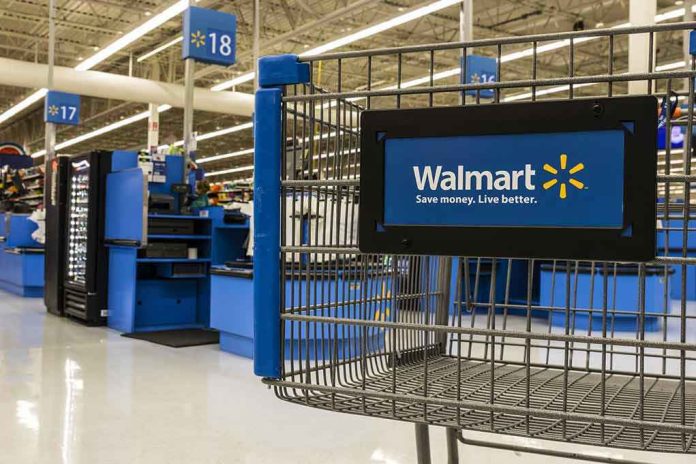
When America’s biggest retailers get caught playing fast and loose with “Made in the USA” labels, you have to ask: is anybody left who actually respects the rules, or are we just supposed to smile and swallow imported goods wrapped in red, white, and blue lies?
At a Glance
- The FTC issued warnings to Walmart, Amazon, and four other companies for questionable “Made in the USA” claims by third-party sellers.
- Violations can bring penalties of up to $50,120 per infraction, with over $15 million in fines already levied since 2021.
- Fast-and-loose origin labeling erodes trust in American industry, hurts domestic manufacturers, and deceives patriotic consumers.
- The rise of online marketplaces has made it easier than ever for imported goods to masquerade as American-made, complicating enforcement.
The FTC Targets Retail Giants for Faking American Roots
On July 8, the Federal Trade Commission put Walmart, Amazon, and several other companies directly on notice for letting third-party sellers claim “Made in the USA” when their products were about as American as a knockoff handbag from Shanghai. The FTC reminded these corporate behemoths that slapping Old Glory on a box doesn’t magically make it domestic. If the product isn’t “all or virtually all” made in the United States, it doesn’t qualify—end of story. This isn’t a new issue. The FTC’s crackdown began years ago, but the problem has grown as online marketplaces exploded, giving foreign sellers a digital cloak to sell imported goods as if they were churned out by American workers. The Trump administration made “Made in America” a top priority, and the rules were crystalized in 2021, but apparently, some folks still missed the memo.
The FTC’s chairman, Andrew N. Ferguson, minced no words: “Consumers want to have confidence that when they buy something labeled ‘Made in the USA’ they are actually supporting American workers and the American economy. Companies that falsely claim their products are ‘Made in the USA’ can expect to hear from the FTC.” That’s a polite way of saying: keep lying, and it’ll cost you. And let’s be clear—these aren’t just idle threats. Since 2021, the FTC has socked companies with more than $15 million in penalties for phony origin claims, and the fines are now up to $50,120 per violation. That’s a pretty penny for anyone who thinks they can sneak a few imports past American shoppers.
Why the “Made in USA” Scam Hits Home for Every American
This isn’t just about a label. It’s about the entire idea of American industry, American workers, and American values. When you buy a product stamped “Made in the USA,” you expect that your money is staying here—feeding families, paying taxes, building communities—not padding the bottom line of some overseas conglomerate or a tech giant that can’t be bothered to check its own virtual shelves. Yet, with the explosion of third-party sellers on Amazon and Walmart.com, it’s become almost impossible for ordinary Americans to know what’s real and what’s imported nonsense. The FTC’s “all or virtually all” rule was meant to restore some sanity and integrity, but enforcement has turned into a high-stakes game of whack-a-mole. And who suffers? U.S. manufacturers trying to compete honestly and the consumers who want to support them.
For every genuine American business that follows the rules, there’s a flood of fakes cutting corners and undercutting prices. This not only cheats customers but also erodes trust in all “Made in USA” claims, making it harder for real domestic producers to stand out. Worse, it rewards the very behavior that built the globalist disaster we’ve been fighting for decades—companies chasing cheap labor and lower standards, then hiding it behind patriotic marketing. The FTC’s move signals a return to common sense, but it shouldn’t take federal threats and million-dollar fines to get our biggest retailers to stop deceiving their own countrymen.
Compliance, Crackdowns, and the Battle for America’s Economic Soul
The bottom line is that the FTC is finally forcing the issue. Retailers and third-party sellers are scrambling to tighten compliance, update disclosures, and actually check where their products come from. Some will clean up their act. But others will keep testing the boundaries, especially as the value of “Made in USA” branding goes up with every new tariff, supply chain shock, and call to bring jobs home. The agency isn’t just slapping wrists; it’s sending a message that lying about being American-made will cost you real money and reputational damage. The hope is that with stricter enforcement, real American businesses will finally have a fighting chance, and consumers can trust that their hard-earned dollars are actually building up the country—not funding the next wave of imported junk.
Of course, some legal experts worry that the rules might be too rigid, penalizing companies for tiny bits of foreign content. But the real story is this: for too long, the system has been rigged in favor of cheaters, and American workers have paid the price. The FTC’s crackdown is a good start, but it’s only the beginning. Until the day comes when “Made in the USA” actually means what it says, the battle for America’s economic soul isn’t over—it’s just heating up.





